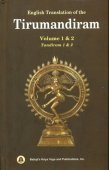Inexpressible: 2 definitions
Introduction:
Inexpressible means something in Buddhism, Pali, Hinduism, Sanskrit. If you want to know the exact meaning, history, etymology or English translation of this term then check out the descriptions on this page. Add your comment or reference to a book if you want to contribute to this summary article.
In Hinduism
Yoga (school of philosophy)
Source: ORA: Amanaska (king of all yogas): A Critical Edition and Annotated Translation by Jason Birch(That which is) Inexpressible can be denoted by the Sanskrit terms Avācya (as opposed by Vācya—‘expressible’), according to the Amanaska Yoga treatise which deals absorption, yogic powers and liberation.—The Amanaska referred to (or qualified) Samādhi with several terms, which are all negative; [e.g., avācya—it is inexpressible;] [...] The fact that such terminology is found in the Amanaska indicates that descriptions of Śiva and the void-like meditative states in Mantramargic Śaivism, were the basis of the descriptions of Samādhi and Paratattva (the highest reality) in this treatise. The Amanaska Yoga was consistent with the Pātañjala Yogaśāstra’s definition of Yoga, yet it described Samādhi in terms different to those of Pātañjalayoga; such as “that which is inexpressible” (avācya).

Yoga is originally considered a branch of Hindu philosophy (astika), but both ancient and modern Yoga combine the physical, mental and spiritual. Yoga teaches various physical techniques also known as āsanas (postures), used for various purposes (eg., meditation, contemplation, relaxation).
In Buddhism
Tibetan Buddhism (Vajrayana or tantric Buddhism)
Source: ORA: Amanaska (king of all yogas): (Tibetan Buddhism)(That which is) Inexpressible (by words) is denoted in the Sanskrit language as Avācya, according to the thirty-third chapter of the Saṃvarodayatantra: a Buddhist explanatory Tantra of the Cakrasaṃvara cycle.—Accordingly, while describing the no-mind meditation: “[...] Free from meditation and concentration and beyond [both] Yoga and reasoning, he leads people to absorption in ‘suchness’, when the mind becomes steady in awareness. It is [...] inexpressible (avācya) by words and even beyond the sphere of the mind”.

Tibetan Buddhism includes schools such as Nyingma, Kadampa, Kagyu and Gelug. Their primary canon of literature is divided in two broad categories: The Kangyur, which consists of Buddha’s words, and the Tengyur, which includes commentaries from various sources. Esotericism and tantra techniques (vajrayāna) are collected indepently.
See also (Relevant definitions)
Full-text (+70): Avacya, Anabhilapya, Nirabhilapya, Vacya, Abhilapya, Akathaniya, Agocara, Avyakhyeya, Atigava, Avacaniyate, Avaktavya, Avacaniya, Anirvacaniya, Ashasta, Shyasukha, Avacyadharma, Expressible, Vimmalporumal, Nirupakhya, Agrahya.
Relevant text
Search found 62 books and stories containing Inexpressible; (plurals include: Inexpressibles). You can also click to the full overview containing English textual excerpts. Below are direct links for the most relevant articles:
Vakyapadiya of Bhartrihari (by K. A. Subramania Iyer)
Verse 3.3.20 < [Book 3 - Pada-kāṇḍa (3): Sambandha-samuddeśa (On Relation)]
Verse 3.3.22 < [Book 3 - Pada-kāṇḍa (3): Sambandha-samuddeśa (On Relation)]
Verse 3.3.21 < [Book 3 - Pada-kāṇḍa (3): Sambandha-samuddeśa (On Relation)]
The Great Chariot (by Longchenpa)
Part 3d.2d - The perfect Dharma < [B. The explanation of the kayas and wisdoms]
Part 2 - There is no realization by the divisions of doctrine < [E. There is no realization by the words of doctrine]
Part 2c.1 - The inexpressible manner of seeing by the eight means of resting < [B. The gradation of powers of those who meditate into high, middle, and low]
Guhyagarbha Tantra (with Commentary) (by Gyurme Dorje)
Text 7.20 (Commentary) < [Chapter 7 (text and commentary)]
Text 6.19 (Commentary) < [Chapter 6 (text and commentary)]
Text 7.16 (Commentary) < [Chapter 7 (text and commentary)]
The Tattvasangraha [with commentary] (by Ganganatha Jha)
Verse 973 < [Chapter 16 - Examination of the Import of Words]
Verse 446-447 < [Chapter 8 - Examination of the Doctrine of the Permanence of Things]
Verse 1239-1242 < [Chapter 17 - Examination of the Definition of Sense-perception]
Taittiriya Upanishad Bhashya Vartika (by R. Balasubramanian)
Alchemy of the Art of Poetry < [April – June, 1997]
Sleeveless – Beauty < [October – December, 1988]
The Bride < [January – March, 1994]
Related products

